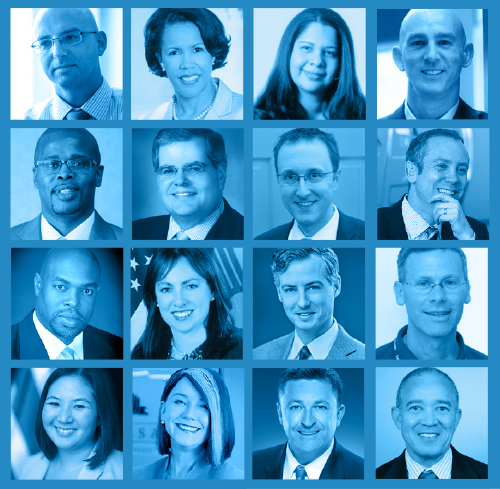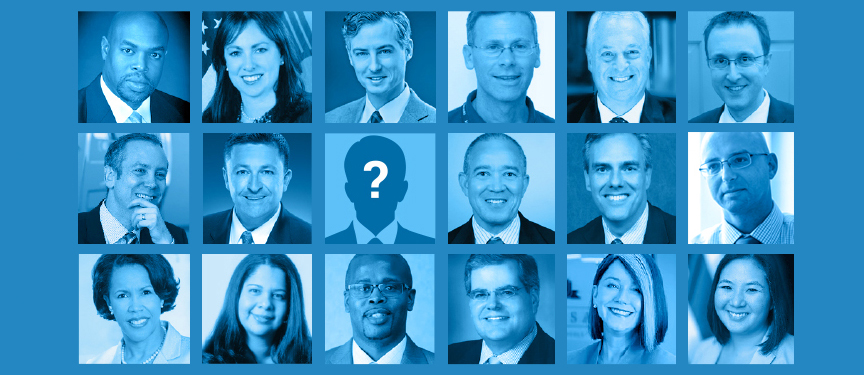
SUBSCRIBE
TO MONTHLY UPDATES
We'll send you information that
will keep you up to date on CFC

Stay woke.
I wore those two words on a small button at the NewSchools Venture Fund Summit in San Francisco this week. Initially, people chuckled figuring I could use some coffee, but they realized that it was a spin on #BlackLivesMatter.
The summit was unlike other conferences I’ve attended. It was far better.
It acknowledged that the education reform agenda cannot be called a “movement” until those most harmed by inequality are leading it. Moreover, it was the first time I have seen my White allies and funders admit their limitations and take a backseat to leaders of color. Black and Latino speakers gave voice to educational policies and politics that keep them and their low-income students stuck in subordinate roles. They energized attendees to take their seats at the table.
Stay woke, y’all.
It wasn’t just the button (which was unofficially distributed to a few dozen people at the conference of more than 1,000) that echoed sentiments of the Black Lives Matter movement. The session topics themselves set the stage for rich, painfully honest dialogue about race and class power dynamics.
White speakers vowed to be more vocal allies for racial equality amid their White peers, some even pledged to groom leaders of color within their organizations to be their successors. This is not just an aspiration, said Mike Magee, the CEO of Chiefs for Change, it’s a goal.
Again, this surprised me.
When I told some White colleagues that I was attending the invitation-only NewSchools Summit, they were shocked. They repeated the same refrain: The event is typically a forum for rich White funders to mingle with White, Ivy League-educated entrepreneurs seeking capital to advance their silver bullet tech ideas.
If that was ever true, clearly things have changed.
Sure, Dr. Priscilla Chan, Mark Zuckerberg’s wife, delivered a presentation about her family foundation, but her work is rooted in improving healthcare and education for poor children.
When NewSchools CEO Stacey Childress (who is White) took the helm in July 2014, she aimed to make a bold shift toward diversity and serving needy students. This year, for example, she increased the percentage of presenters of color to 50 percent and required that the invitation list be at least 30 percent nonwhite.
Sitting as one of four speakers on a panel titled, “I Care About Diversity, But…Moving from Talk to Action,” Childress made her stance clear: “There should be several amazing Black and Latino candidates [within NewSchools] to take my place, but that is not going to happen without intentionality.”
MAKING THE SHIFT
Not everyone is happy about this shift. Childress said some of NewSchools’ more conservative supporters have stopped participating in the summit.
As an African-American mother/teacher/writer who founded a nonprofit called Teachers Who Pray, I brought my whole self to the NewSchools Summit.
I was unapologetically Black and female and Christian and even when others expressed ideas I didn’t agree with, I felt a sense of belonging. (This is not always the case as I navigate the White liberal education reform space.)
Brittany Packnett, executive director of Teach For America St. Louis, spoke truth to power when she explained that Blacks often have to exert extra cognitive energy, such as worrying about how their hair looks or how their facial expressions are perceived, lest the slightest perceived misstep discredits them.
Bad enough, she said, some of her funders rescinded their support for her TFA St. Louis chapter when she began organizing the Black Lives Matter protests against the police’s killing of unarmed teenager Michael Brown.
Nate Parker, lead actor and director of the movie “The Birth of a Nation,” which is about the slave rebellion led by Nat Turner, encouraged us to be courageous in the fight for educational equity. He asked: If you are handcuffed and remove the shackle off your left wrist and attach it to a pole, you can now wave that left hand, but are you free?
Arne Duncan, former U.S. Secretary of Education, declared that the children in America who are getting the worst education of all are neither Black nor Hispanic, but Native American. The schools on the Indian reservations are run by the Department of the Interior, and Duncan said he tried, but failed, to provide the Department of Education with jurisdiction over these areas.
“Growing up on the South Side I thought I understood what poverty and hunger looked like,” he said. “The unemployment, high suicide rates of the Native Americans…everyone deserves the best but no one deserves it more than the kids on the reservation.”
In one session, panelists hotly debated the virtues of zero tolerance discipline policies, and in another, the audience challenged author Paul Tough to decide whether low-income kids lack grit or are as gritty as they come.
Thank you, NewSchools. Please invite me back next year so I can help hold you accountable for accomplishing the game-changing goals you so boldly have set on behalf of disadvantaged students.
Even though the names Michael Brown, Freddie Grey and Laquan McDonald have faded from headlines, speakers at the conference emboldened us not to ignore the systematic racism that keeps black and brown children in poverty and in failing schools.
That, my friends, is what it means to stay woke.